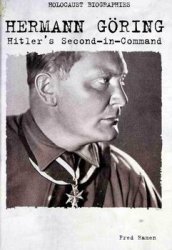Life and Era of
President of Liberia
William Richard Tolbert (1913-1980) became the eighteenth president of Liberia in January 1972, the last of the old succession of Americo-Liberian presidents.
On April 12,1980, a military coup d’etat, led by Master Sergeant Samuel Kanyon Doe, overthrew Tolbert, executing him and several members of his cabinet, on Monrovia Beach in front of television cameras.
Devoted to Christianity, Tolbert was an ordained minister in the Baptist Church. Between 1965 and 1970 he served as president of the Baptist World Alliance. Tolbert later became chief adviser for the All-African Missionaries Evangelistic Union in 1973.
Government attracted Tolbert and he took a position as a typist for the national treasury in 1934. Tolbert was promoted to disbursement officer for the government in 1936. In 1943 he won election to the National House of Representatives on the True Whig Party ticket. Tolbert became the youngest man to be elected vice president (serving under President William V. S. Tubman) in Liberian history in May 1951.
When Tubman died in 1971, Tolbert assumed power. He no longer wanted other Africans to view Liberia as a vassal or “colony” of the United States. Tolbert openly negotiated with South Africa, at a time when it embraced apartheid or legal racism, which made it repugnant and a pariah among nations. He aggressively established diplomatic relations with the USSR and Czechoslovakia. Tolbert also cultivated improved relations with radical Guinea. These actions improved relations with neighboring states and culminated in the formation of the Economic Community of West African States. In 1979 Liberia hosted the Organization of African Unity, which elected Tolbert president.
Reform-minded, Tolbert fired corrupt cabinet ministers, revamped Liberia’s national security system, freed political prisoners, encouraged greater freedom of the press, and lowered the voting age to eighteen. The presidential yacht cost $250,000 a year to maintain, so he sold it. Liberia’s presidents drove state-owned Cadillacs; he sold his and bought a Volkswagen. Making surprise raids in early morning hours, he tried to ensure that civil servants actually earned their pay. Appalled that civil servants had to give the True Whig Party one-month’s salary every year to support the party, Tolbert abolished this custom, winning him new supporters among the civil servants. Lowering and subsidizing the price of rice improved his popularity among the urban poor.
Liberia became the world’s leading maritime power, despite owning only two merchant ships, by allowing foreign ship owners to register their vessels under Liberia’s “flag of convenience.” The Firestone Rubber Company continued to flourish as its 90,000-acre rubber plantation thrived under Tolbert’s “open door policy.” By 1973 Liberia ranked as the world’s third-largest iron ore producer. Pressuring foreign companies to hire more Africans, Tolbert also raised taxes levied on company profits. Tolbert insisted on a greater role for Liberians in foreign-owned companies. Liberia, however, did not have enough trained local manpower to absorb the new opportunities thus created. Consequently, foreign managers and technicians continued to benefit from the creation of high paying skilled work.
As more and more Liberians were drawn into the cash economy, a new problem emerged: “back street boys.” These were urban drifters unable to find employment who engaged in urban crime waves. They lived in squalid neighborhoods of Monrovia and were a potential source of unrest. Poor sanitation and inadequate housing made them susceptible to demagogues. In an economic climate of falling export prices and dwindling opportunities, even for university graduates, Liberia was a source of potentially explosive unrest throughout the 1970s.
Africanization of an economy long controlled by foreign interest became one of Tolbert’s goals and his means of dealing with frustration that was boiling over into anger. Calling for greater self-sufficiency, Tolbert tried to promote a new subsidy on rice. The opposition opposed this since his family was among Liberia’s largest rice growers. Gabriel Baccus Matthews, an admirer of Julius Nyerere of Tanzania, and leader of the Progressive Alliance of Liberians (PAL), organized a peaceful demonstration in Monrovia. An estimated
10,000 “back street boys” joined PAL’s 2,000 activists. The back street boys soon rioted, looting retail stores and rice warehouses.
Tolbert ordered the militia to restore order. They had orders to “shoot to kill” and they fired on demonstrators, killing 74. He proceeded to jail political opponents on charges of sedition. In January 1980, the PAL officially registered as an opposition party under the name People’s Progressive Party (PPP). In March the PPP, with backing from elements within the Liberian Armed Forces, launched a general strike, and called for Tolbert’s removal. It was in this highly charged environment that on April 12, 1980, Sergeant Doe murdered Tolbert and seized control of Liberia.
Dallas L. Browne
Biography
William Tolbert was born on May 13, 1913, in Bensonville, Liberia. Attended Bensonville Elementary School. Studied at Crummell Hall Episcopalian High School. Graduated summa cum laude in 1934 from the University of Liberia. Married Charlotte A. Hoff. Elected vice president under President William V. S. Tubman in May 1951. Assumed presidency upon Tubman’s death in 1971. On April 12,1980, a military coup d’etat, led by Master Sergeant Samuel Kanyon Doe, overthrew Tolbert, executing him and several members of his cabinet, on Monrovia Beach.
Further Reading
Boley, G. E. S. Liberia: The Rise and Fall of the First Republic.
New York: St. Martin’s Press, 1984.
Brown, D. “On the Category ‘Civilized’ in Liberia and Elsewhere.” Journal of Modern African Studies. 20, no. 2 (June 1982): 287-303.
Cordor, S. H. Facing the Realities of the Liberian Nation.
Philadelphia: Institute for Liberian Studies, 1980.
Gray, B. A., and A. Batiste. Liberia During the Tolbert Era.
Washington, D. C.: Library of Congress, 1983.
Guannu, J. S. An Introduction to Liberian Government: The First Republic and the People Redemption Council. Smithtown, N. Y.: Exposition Press, 1981.
Hlophe, S. S. Class, Ethnicity, and Politics in Liberia: A Class Analysis of Power Struggles in the Tubman and Tolbert Administrations from 1944-1975. Washington, D. C.: University Press of America, 1979.
Sankawulo, W. Tolbert of Liberia. London: Ardon Press, 1979. Shick, T. W. Behold the Promised Land: A History of Afro-American Settler Society in Nineteenth-Century Liberia. Baltimore: Johns Hopkins University Press, 1980.
Sundiata, I. Black Scandal: America and the Liberian Labor Crisis, 1929-1936. Philadelphia: The Institute for the Study of Human Issues, 1980.




 World History
World History









